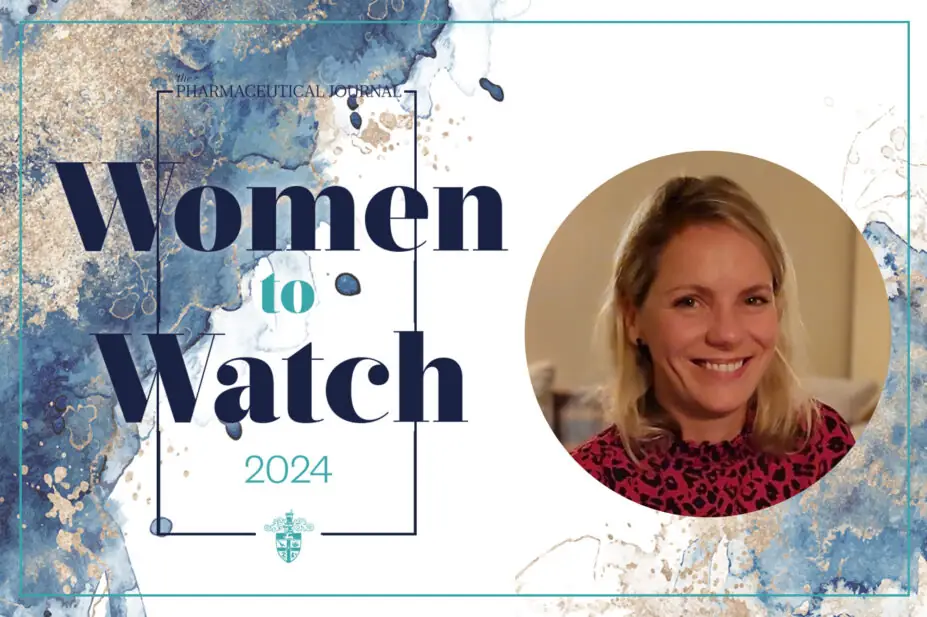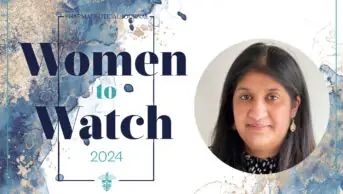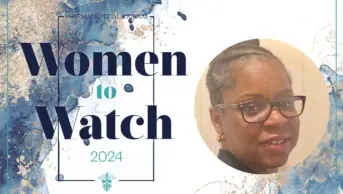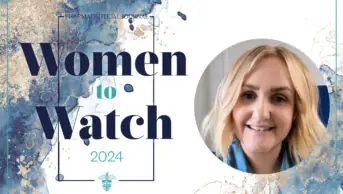
The Pharmaceutical Journal/Alet Ransom
Alet Ransom never intended to work in pharmacy, yet her willingness to take on challenges and find practical solutions to everyday problems has seen her flourish as a pharmacy technician going “above and beyond” at every stage.
Our judges were struck by her ability to lead teams to success, “uplift” those she works with and were impressed by her “extensive collaboration”. However, Ransom describes her career as almost “accidental”.
Travelling to the UK from South Africa on a working holiday in 2003, Ransom ended up staying after meeting her husband. In 2007, she did a degree in animal sciences at the University of the West of England. As a self-funded international student, she applied for a Saturday job at a local Rowlands pharmacy in Bourton-on-the-Water, Gloucestershire, and found she had a flair for it. Over the next seven years, she progressed from counter assistant to dispenser to pharmacy technician, before finally becoming pharmacy manager.
Random remained conflicted about wanting to use her animal sciences training and applied for a job as a research scientist. It turned out to be a huge mistake, she admits: “It went completely against my moral beliefs; it was essentially testing on animals for animals. I stuck it out for a year, but it made me really unhappy,” she explains.
I think pharmacy technicians are incredibly capable as long as they have the right support
Her ability to adapt to new roles took her back into the NHS at Oxford University Hospitals NHS Foundation Trust. She found a role as a medicines management technician in neuroscience, before becoming the only multiple sclerosis pharmacy technician in the country, providing careful monitoring and tracking of patients.
After working for a year, helping to set up clinical trials, in 2022, Ransom’s career evolved once more when she moved to her current job at the North Oxfordshire Rural Alliance Primary Care Network, driving forward several quality improvement projects. Here, she has tackled bone health, atrial fibrillation, environmental sustainability, pharmacy integration and deprescribing. The team’s work on inhalers alone has cut the primary care network’s (PCN’s) carbon footprint by the equivalent of seven return flights from London to New York.
She is also the PCN cardiovascular champion. During her medicines management clinic at one of the practices, there were two patients who needed blood pressure monitoring but could not access it, which led Ransom to spearhead a campaign to provide blood pressure monitors at the local library. The council was enthusiastic and she convinced the PCN and charities to provide funding. “All the library staff are trained to make every contact count, so whether it’s the cost-of-living crisis, losing weight, stopping smoking, they signpost people. It’s worked really well,” she says.
Ransom also recalls that her father’s best friend died from hypertension when she was at school, so she knows how vital it is to be able to access blood pressure monitoring.
Her goal is to roll out access more widely across the region, maybe even moving monitors into leisure centres. One patient really sticks in her mind: he had no fixed address and was believed to be living in a caravan with no heating. He came into the library and found out his blood pressure was very high. Staff gave him lots of information, he came back a couple of times and eventually was convinced to visit his GP, who saw him straight away. “I think we saved his life,” she says.
Ransom also commandeered two mobile devices for taking ECG readings that could be used to detect atrial fibrillation in housebound patients and won a £10,000 grant from Daiichi-Sankyo’s ‘Atrial fibrillation — detect, protect and perfect’ initiative, which is expected to launch at the end of 2024. “I’m now busy trying to get all the surgeries when they do an over-40 health check, to do a manual pulse check, because then they can detect the irregular pulse and organise an ECG, and the clinical pharmacist team can start them on treatment,” she says.
Those who work with Ransom could not sing her praises more highly. Her resourceful and practical approach makes things happen, they say. “I think pharmacy technicians are incredibly capable as long as they have the right support,” she says. A tendency to sometimes question her ability has pushed her to continue to develop her skills, she explains.
Outside of work, she can mainly be found walking her two springer spaniels in the countryside — one of whom is seven months and a bit of a handful. She is also trying to get her colleagues as excited about baking as she is. “I’ve got everyone signed up for Bake Off. They have to pick a contestant and as your person goes out, you have to bake something in the theme of that week. It doesn’t have to be good. It’s just good fun,” she says.
Never one to rest on her laurels, she is looking to keep learning, she says. A quality improvement project for patients on steroids is in the pipeline.
“I really like weird query solving and spotting errors. I had a patient the other day who had been told in one letter to continue on antiplatelets and another not, and so I ended up chasing down the consultant. I like to make sure everything is exactly right.”
Panel comments
“Alet is often described as a brilliant yet under recognised figure in the field of pharmacy, having achieved significant milestones.”
“Very impressive! I love how much Alet has achieved. Such a wonderfully written nomination and a great example of a pharmacy technician going above and beyond.”
- Meet the rest of The Pharmaceutical Journal’s Women to Watch 2024 here


